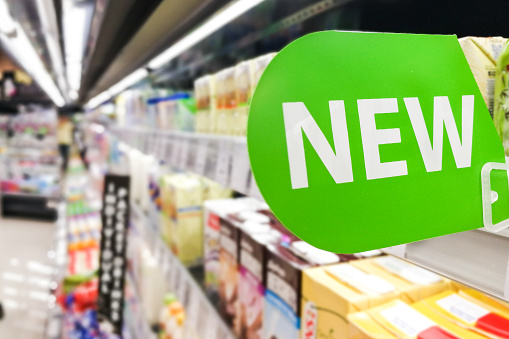In today’s world, where environmental concerns are taking centre stage, businesses are rethinking their marketing strategies to align with eco-conscious consumer values. One area of marketing that has seen a significant shift towards sustainability is product sampling.
Companies are increasingly adopting eco-friendly marketing materials and eco-friendly promotional products for product sampling campaigns to reduce their carbon footprint and resonate with environmentally-conscious consumers.
The Importance of Sustainable Marketing
Sustainability has become a key driver in consumer decision-making for some audiences. Shoppers are no longer just looking for great products; they are also interested in the environmental impact of the brands they support. Consequently, businesses prioritising genuine sustainability (no green-washing!) in their marketing efforts gain a modern competitive edge.
Product sampling is a powerful marketing tool that allows companies to introduce their products to potential customers, creating brand awareness and driving sales. However, traditional product sampling materials can generate a significant amount of waste – as with all non-renewable packaging materials. By switching to sustainable promotional materials where possible, businesses can not only reduce their environmental footprint but also create a positive brand image.
After all, with 81% of sample recipients planning to purchase a full-price product, product sampling is just too powerful a strategy to ignore for the sake of some sustainable forethought.
Eco-Friendly Marketing Material Ideas for Product Sampling
If your brand is looking to improve sustainability, particularly with regard to packaging and marketing materials for your products and product samples, here are some great ideas!
1. Biodegradable Packaging:
One of the most straightforward ways to make product sampling eco-friendly is by using biodegradable packaging and marketing materials. Companies can opt for compostable bags, containers, or wrappers that break down naturally, leaving no harmful residues in the environment. This not only reduces waste but also appeals to environmentally-conscious consumers.
2. Recycled Materials:
Another effective approach is to use packaging made from recycled materials. Recycled cardboard, paper, or recycled plastic can be used for product sample containers. By reusing materials, businesses help reduce the demand for virgin resources and promote a circular economy.
3. Reusable Containers:
Some brands take eco-friendliness to the next level by offering reusable sample containers. These can be made from sustainable materials like bamboo, glass, or stainless steel. By encouraging consumers to keep and reuse these containers, companies not only reduce waste but also promote brand loyalty.
4. Digital Sampling:
In the age of technology, digital sampling has emerged as a sustainable alternative. Brands can offer virtual product samples through websites, social media, or email campaigns. This not only saves on materials but also allows for a broader reach.
5. Minimalist Design:
Sustainable marketing materials often adopt minimalist design principles. Simple, clean, and eco-friendly packaging designs convey a sense of responsibility and commitment to the environment. Less intricate designs also reduce printing and production costs.
Remember! Mimicking environmentally conscious designs without a positive intended environmental impact is called greenwashing and will negatively affect your brand, so stay clear of false advertising!
6. Plantable Packaging:
An innovative approach to eco-friendly marketing materials is using packaging that can be planted to grow flowers, herbs, or trees. This not only adds value to the packaging but also promotes sustainability in a creative way.
The Benefits of Eco-Friendly Product Sampling
1. Positive Brand Image:
Adopting eco-friendly marketing materials for product sampling sends a clear message that your brand cares about the environment. This resonates with consumers who are increasingly seeking eco-conscious choices.
2. Cost Savings:
While initially, sustainable materials may seem more expensive, they can lead to cost savings in the long run. Reduced waste disposal costs, lower production expenses, and potential tax incentives can make eco-friendly marketing materials economically viable..
3. Regulatory Compliance:
As governments worldwide introduce stricter environmental regulations, using eco-friendly materials ensures that your business stays compliant with emerging sustainability standards.
4. Increased Customer Loyalty:
By aligning your brand with eco-friendly values, you can attract and retain environmentally-conscious customers who are more likely* to become loyal supporters of your products and services.
Is eco-friendly product sampling the future?
Eco-friendly marketing materials for product sampling are no longer just a trend but a necessity in today’s eco-conscious world. Businesses that embrace sustainability in their marketing strategies not only contribute to a healthier planet but also stand to benefit from increased brand loyalty and consumer trust. As consumers continue to prioritise sustainability, it’s clear that eco-friendly product sampling is here to stay, and businesses that adapt will thrive in this new era of marketing.
Relish is the top UK product sampling agency, offering superior campaign insights and results that speak for themselves. Whether your brand has an eco-friendly campaign in mind or you want a partner to help you bring your bespoke project to fruition, Relish is the agency to get you the most out of your marketing budget, with partnerships and innovation you’ll find nowhere else.







